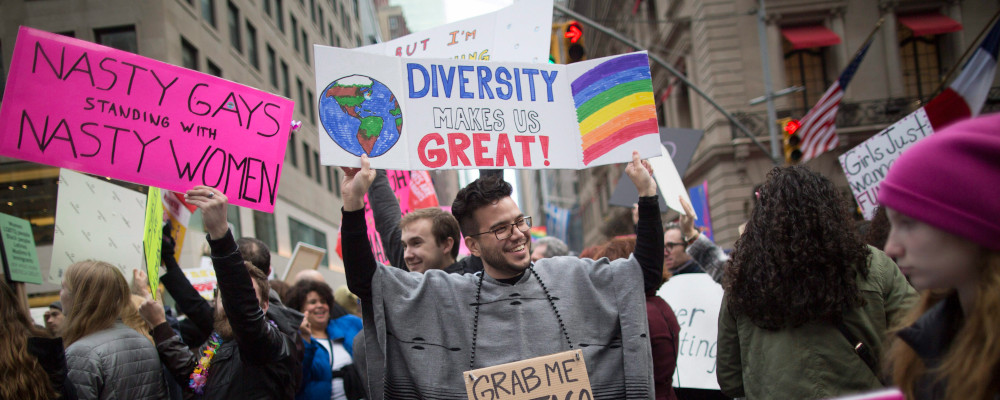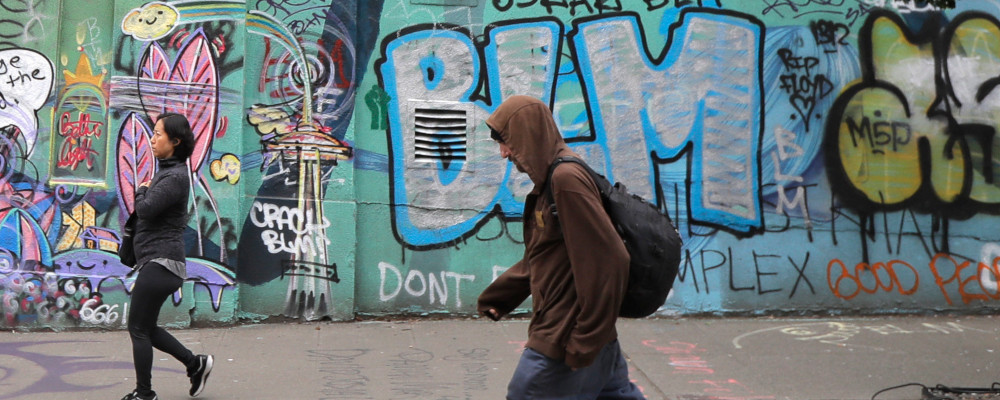Defenders of Western civilisation can make a superficially convincing case by invoking four facts. The first is Western technical superiority which is at least as old as the Industrial Revolution, and which is now universally imitated. Overwhelming economic might is the second fact. Vast military power, led chiefly by the United States, is the third. And the fourth is that people from other parts of the world tend to immigrate in large numbers to the West, and not the reverse. In the minds of many observers, those facts prove that the West is generally stronger than the rest of the world and more desirable to live in.
This is a fair assessment, so far as it goes. But it looks suspiciously like a conflation of “Westernness” with industrial modernity—consigning rather a lot of our history to oblivion for no obvious reason.
It also tells us very little about what the West is like, why it is like that, and whether or not it is good. Something could well be powerful and popular, and yet not be good. And even if the greater virtue of the West were self-evident, explanations for it are generally unconvincing. None of the old explanations, especially the theory of racial superiority, make sense. None of the instruments of civilisation—writing and mathematics, for instance—are of Western origin, and the West was not pre-eminent for most of human history. Our present dominance is of fairly recent origin, and some observers think that it is fading away. The West obviously took earlier achievements to new heights, but it did not originate them. Moreover, the theory of dominance raises an uncomfortable question: if the West were not dominant, would that make Western civilisation inferior? The answer to that question should be “no” since Western civilisation is just as influential upon its own practitioners as is any other civilisation anywhere else on its own people. And we should not disparage our own late-antique or mediaeval forebears simply because they did not rule the world.
One thing seems to be unique about the West, though. This is the fact that our best feature is also our worst flaw. I am referring to our cultural and ideological commitment to progress. Westerners have assumed for a long time that progress is basically a law of history, or at least a natural process that unfolds as long as everything else is in good order. Our species, so the idea goes, has been steadily moving away from ignorance and superstition towards enlightenment. Technology advances inexorably, and scientific progress is accompanied by moral development and increased happiness.
The origin of our commitment to progress can be found in a misapplication of the central assumptions of Western Christianity. The New Testament’s emphasis on putting off “the old man” in favour of personal, moral transformation, as well as a “new creation” and a “new heaven and a new earth” has been there from the very beginning. Such ideas referred to spiritual renewal and a future state of perfection at the end of time. The problem appears when, instead of waiting patiently for the End of Days, people attempt to realize a state of perfection here on earth right away. After the collapse of the western Roman Empire, churchmen like the Venerable Bede (d. 735) and Alcuin of York (d. 804) longed for an intellectual and moral transformation that would result in more and better-educated priests, pious laymen who at least knew some prayers in their native languages, and righteous kings and nobles to correct their subjects and guide them to salvation. The same spirit went wrong with the emperor Charlemagne’s efforts to spread Christianity to the heathen Saxons at the point of the sword, and the result was unspeakably violent and destructive (at least until Alcuin talked him out of it).
Another example is the great Christian revolution beginning in the 11th century under Pope Gregory VII (d. 1085). The pope saw the whole world as a vast field of battle between the forces of Christ and those of Satan, and victory had to be secured immediately. The only way to do this was a thorough, root-and-branch reform of society. Apart from efforts to purify the church, like clerical celibacy and forbidding the purchase of the priestly office, the reforms rigorously distinguished between the ecclesiastical and the secular, and the dichotomy has held good down to our own time. The kingship of people like Charlemagne and his successors was drained of all its sacred and spiritual power since those qualities ought to belong to the church alone. The domination of monasteries and other ecclesiastical institutions by local lords was terminated, so that the church could be wholly free of worldly influence. This vast project was known as reformation—a word that would come to have ominous connotations. The other great church reformer Martin Luther (d. 1546) claimed to hate Gregory VII and everything he stood for; and yet, Luther was animated by the same revolutionary spirit as the iron-willed pope. The final outcome of the revolution, alas, was the spiritual and social breakdown that we call the Reformation and the religious wars that grew out of it.
During the Age of Empire, the European obsession with remaking the world gained new impetus amidst ever-more surprising discoveries and encounters with new peoples. The idea of a new world of constant progress and limitless knowledge seemed irresistible. Such was the inspiration for Oswald Spengler’s vision of the West as “Faustian”—an adjective derived from the myth of Doctor Faustus, the alchemist and magician who sold his soul to the devil in exchange for infinite knowledge. This new world of endless scientific progress found an ideological foundation in the works of Francis Bacon (1561–1626) and René Descartes (1596–1650). The purpose of knowledge and technology was to simply increase mankind’s happiness, wealth, and power said Bacon. All the knowledge of the past was, therefore, best thrown away since philosophy and science had so far failed to produce new discoveries and riches. As long as we could avoid old mistakes, though, the present and future ought to be attended by steady progress. This outlook was especially influential on Descartes, who resolved to forget everything he knew and start over—a mode of thought that still dominates Western philosophy and politics.

Other cultures lose and forget their patrimony through foreign conquest, or maybe an especially nasty dynastic revolution. But here in the West, we forget our own heritage deliberately. This is not always bad, of course. Abolishing the slave trade and the practice of burning witches at home and widows in India come to mind immediately—examples proving that we in the West are not the only beneficiaries of consigning things to oblivion. But there is a dark side. Like Charlemagne versus the Saxons, in the heyday of empire, we tried to force others to give up many good or neutral ancestral customs in the hope of shaping an ideal world. Many of the horrors of forced conversion, deracination, and, in the Canadian context, the drive to “take the Indian out of the Indian” (as Sir John A. Macdonald and Pierre Trudeau put it) are still vivid. Once again, in the concise language of software, our best feature is also our worst “bug.”
In our own time, the spirit of forgetfulness takes shape in the continuum spanning the two seeming extremes of neo-conservatism and woke progressivism. Those two are not really distinct, antithetical phenomena, but rather two expressions of a single, perfectionist, utopian impulse. They are both animated by a spirit of forgetfulness that inspires the abolition and defunding of institutions, renaming things, toppling governments, and, of course, pulling down statues. Those outcomes were once achieved abroad by European colonial powers, and eventually by American and French revolutionaries at home. Then came the age of American intervention abroad, wiping away first the old European empires, and later Nazi Germany and Imperial Japan and transforming them into civilised allies. The project was attempted more recently—albeit with very doubtful results—in Iraq, Afghanistan, and Libya. And now, violent upheavals and sudden deracinations happen within America and Europe in an effort to dismantle an old and to establish a new society.
As for science and technology, the downsides of the industrial revolution were more than offset by improvements in public health, and by efforts to alleviate the lot of the poor and to abolish slavery. More recently, average inflation-adjusted incomes have risen 307 percent between 1950 and 2020. From the 1960s to the present, life expectancy has increased by 43 percent, infant mortality has plummeted by 77 percent, extreme poverty has declined, literacy has increased dramatically, and the problem of starvation has, in many places, been replaced by that of obesity. In other words, over the past 200 years or so, many of the problems that once made life hard, or downright miserable, have gone away, all thanks to scientific and technological progress.
And yet, that same spirit gave us the early 20th-century doctrine of Futurism. Like Cartesian forgetfulness on steroids, it made a virtue of wiping away the past, ideally with violence, and accelerating the pace of technological change. Futurism gave birth to Fascism and Nazism on the political Right, and on the Left the Futurists became Bolsheviks. Even in liberal societies, the spirit of progress gave us the noxious blend of social Darwinism and public hygiene that we now call eugenics. It also gave us industrial warfare on a gigantic scale, as well as chemicals and bombs powerful enough to destroy entire nations. All the technology we now depend on fills the atmosphere with particles and fumes and ruins the natural environment to the point that many people now believe that human life itself is in grave danger. And many elites now fear that the “Information Superhighway” inaugurated in the 1990s is about to usher in the epoch of “disinformation” and the end of liberal democracy.
However that may be, contrary to progressive expectations, the present moment is one of great unhappiness. People feel themselves increasingly friendless, isolated, invisible, insignificant, and depressed—so much so that the American Surgeon General felt compelled to release an advisory report on the epidemic of loneliness and isolation in 2023. The younger you are, the worse the problem seems to be. The percentage of teenage Americans who claim not to enjoy life, or who believe that their lives are not useful, is now just under 50 percent—nearly a 20 percent rise since the early 1990s, as documented in Jean M. Twenge’s new book Generations. So if there is supposed to be a positive correlation between technological development and human happiness, it does not seem to be operating now.

Loneliness and isolation are not unique to the West, of course. Those problems are also found in all industrial societies and are especially acute in places that tried to catch up to the West by industrializing themselves too rapidly, such as Russia and China. Despite many obvious benefits, industrial modernity, with all its regimentation and lack of spontaneity, alienates people from traditional modes of life on a family farm or in an ancestral village. The result is what sociologist Robert Nisbet called “the quest for community” which, in the early- to mid-20th century took a grim turn as people sought fellowship and solidarity in totalitarian movements. In contrast, the doctrine of progress does not even pretend to offer a solution but rather makes a virtue of the dislocations, upheavals, and isolation of industrial society. Those are simply viewed as the cost of progress and the proof that it has occurred.
The still-dominant ideology of liberalism can lead to a similar outlook. The prophets of post-Cold War liberalism hold that the old bonds of family, religion, and community must be broken in order to assure individual flourishing and economic well-being. Individual self-interest and self-creation are, they say, the only sure facts amidst the uncertain abstractions of society, tradition, and public morality. Obviously, some people find this outlook appealing. But it too has a dark side. The liberal penchant for sweeping away what John Stuart Mill called “the despotism of custom” amounts in practice to a perpetual revolution that will not stop until it has abolished or destroyed all human bonds and institutions. If that sounds facetious, ask yourself how many times over the past 35 years politically correct language and elite consensus had seemed settled, only to change unpredictably and persistently.
Is there any hope? There is, and it springs from an unlikely source. The modern industrial world of ever-expanding freedom and change began to be challenged towards the end of the 20th century. Attacks were launched on the “grand narratives” of progress and modernity by the postmodernists and deconstructionists. Much of what Foucault, Baudrillard, Derrida, and their ilk had to say was nonsense, of course, but the instinct to expose the contradictions and dissolving perspectives of modernity was right. And yet, the critique failed to generate viable alternatives. In contrast, I think the conservative instinct to look backward presents a natural advantage. We no longer need to make the case that something is wrong or that aspects of modernity are hypocritical and unnatural because this has already been done by our antagonists. And because our search for truth and meaning takes us beyond modernity to the deep past, we can avoid confining all Western achievements to recent technological, economic, and military power. Others may never look back upon the past, but some of us remember the truth of what we once had.
But here, we close in once again on the problem. As long the West remains committed to perfection here on earth, we will never re-establish the stability and settled conditions that human flourishing requires. The main challenge before us now is not the realization of a utopian dream, but finding peace and stability in a disordered world, and what many still consider to be our best feature will not help.
Recommended for You

‘Our role is to ask uncomfortable questions’: The Full Press on why transgender issues are the third rail of Canadian journalism

Need to Know: Mark Carney’s digital services tax disaster

Theo Argitis: Carney is dismantling Trudeau’s tax legacy. How will he pay for his plan?

Kirk LaPointe: B.C.’s ferry fiasco is a perfectly Canadian controversy




